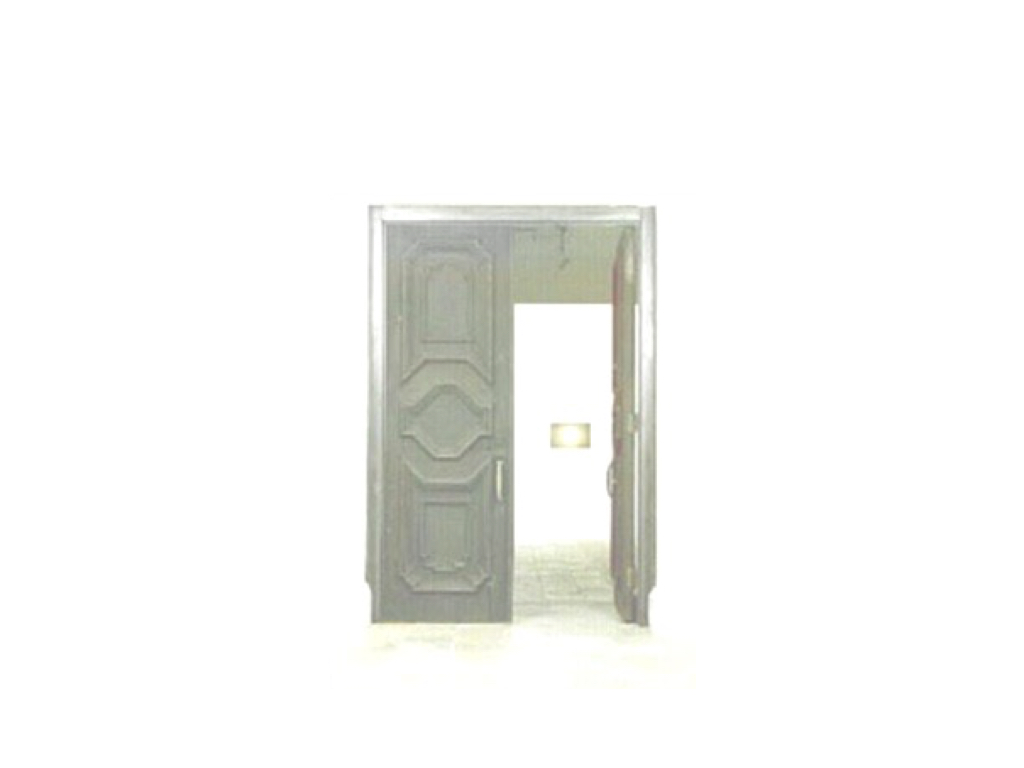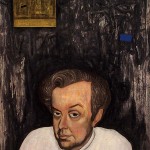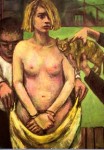February 28th 2000
“The Gods of Times Square” is a documentary by Richard Sandler.

bringing science into art and art into science
February 28th 2000
“The Gods of Times Square” is a documentary by Richard Sandler.
February 10th 2000
A poetry reading of works by Mei-Mei Berssenbrugge and Krysia Jopek.
January 24th 2000
Honorary Chair: John Ashbery
Curators: John Bissell, Willem Dafoe, Sean Gullette, Lyle Hysen, Elizabeth LeCompte, David Levine, Kate Valk. Committee: Anurag Bhargava co-chair, Debra Scherer co-chair, Henry Buhl, Michael Caruso, Tom Fontana, Massi Ghausi, Agnes Gund, Eva Herzigova, Sarah Lee, Rick Montgomery, David Sussman, Hillary & Bradley Thomas, David Thorpe, Jed Weintrob. Projects: Darren Aronofsky, Peter Care, Larry Clark, James Crutchfield, Jim Findlay, Michael Galinsky, Suki Hawley, Lewis Klahr, Ken Kobland, Alex McDowell, Jon Moritsugu, Ret.Inevitable, Richard Sandler, Leslie Thornton, Todd Solondz, Brett Vapnek, The Wooster Group.
November 18th 1999
A reading of works by Bernadette Mayer and Dan Machlin.
October 28th 1999
A reading of works by Tom Breidenbach and Jonathan Goodman.
![]() Sept 23 – Oct 30 1999
Sept 23 – Oct 30 1999
An exhibit of a selection of paintings by artist Anne Dunn.
May 20th 1999
A reading of works by C.D Wright & Camille Guthrie.
April 30 1999
A reading of Avec: A Journal of Writing.
April 27th 1999
The Antioch Review, with Victor Navasky.
April 8th 1999
A reading involving Galway Kinnell, Marie Ponsot, Agha Shahid Ali, Stephen Sandy, Alan Michael Parker, Chuck Wachtel.
 March 6 – April 10, 1999
March 6 – April 10, 1999
This marks the first exhibition of portraits by an artist whose reputation was established as an abstract painter. Six portraits will be shown along with a large abstract painting to provide a context. Portrait subjects include: Poet John Ashbery, who, among numerous other distinctions, has received the MacArthur Prize Fellowship and the Pulitzer Prize, and has twice been named a Guggenheim Fellow; he is a member of the American Academy of Arts and Letters and the National Academy of Arts and Sciences. He is also a chancellor of the American Academy of Poets. Novelist Ted Mooney, Senior Editor of Art in America, who has received awards from both the Guggenheim Foundation and the Ingram-Merrill Foundation. Actress,Melissa Errico, who is known for her achievements on the Broadway stage. Poet, author and art critic, John Ash. Poet and art critic, Tom Bridenbach. Yannis Dellatolas, 20th century music expert and photographer. Elizabeth Schub, filmmaker. Continue reading “Stephanie Rose, paintings”
February 25th 1999
A reading of poetry by Jackson Mac Low and Jena Osman with introductions by Stephen Mounkhall and Sharon Lattig. Continue reading “Jackson Mac Low and Jena Osman”
December 11th 1998
A reading of works by Nuala Ni Dhomhnaill and Paul Muldoon with introductions by Oona Frawley.
Every language is its own world, and I find myself an immediate tourist in writing this introduction, in English, about Nuala ni Dhomhnaill’s Irish poetry, because the Irish that is Nuala’s is a world of quite different dimensions to the one we inhabit when we use English. Reading her poetry, then, even if in the translation that has made her work available to a larger, non-Irish reading public, is an Immram, a holy voyage of sorts, like those the Irish scribes recorded centuries ago. Continue reading “Nuala Ni Dhomhnaill and Paul Muldoon”
 November 28 – 24 December 1998
November 28 – 24 December 1998
A group show of paintings and drawings by Camille Eskell, Katherine Kadish, Christina Park, and Alexandra Wiesenfeld.
Continue reading “Group Show, paintings and drawings”
November 5th 1998
A reading of works by Raphael Rubinstein & Max Henry with introductions by Neil Grayson and Stephen Mounkhall.
October 27th 1998
A poetry reading by Ann Lauterbach and Heather Ramsdell with introductions by Sharon Lattig and Stephen Mounkhall.
A collection of self-portraits (one painting and drawings) by Judy Glantzman, curated by Neil Grayson.
The Dactyl Foundation is proud to open the 1998 fall season with an exceptional exhibition of one painting and twelve drawings by Judy Glantzman. Her work has received a number of prestigious awards, and her reputation has been thoroughly established in national art publications over the past fifteen years. In the early 80s the talk was about her precedents (i.e. Francis Bacon, Willem de Kooning or Edvard Munch), but, now that the force of her influence on contemporary artists is becoming more and more obvious, recent discussion has been engaged in finding a definition for her own unique style. Continue reading “Judy Glantzman, one painting and drawings”
May 1998
A poetry reading by John Ashbery & Gerrit Henry with introductions by Neil Grayson.
John Ashbery’s awards include the Pulitzer Prize, National Book Award, National Book Critics Circle Award and a Fullbright fellowship. His work includes Wakefulness (1998); Can You Hear, Bird (1995); And The Stars Were Shining (1994); Hotel Lautremont (1992); Flow Chart (1991); April Galleons (1987); A Wave (1984); Self – Portrait in a Convex Mirror (1975) and Some Trees which was selected by W.H Auden for the Yale Younger Poets Series.
Gerrit Henry is an art critic as well as a poet, his work has appeared in the Paris Review, Yale Review and the New York Times.
A selection of paintings and works on paper by James Gilroy.
Two works in particular, Untitled 2, 1997 (33 x 25″ oilstick on paper) and Untitled 3, 1997 (33 x 25″ oilstick on paper), represent figures that could be falling or dancing. In a body of work painted a year later, there are figures that are clearly falling, for example, Boxers, 1999 (48 x 38″ oil on linen) and V, 1998 (48 x 32″, oil on linen). Continue reading “James Gilroy, Paintings”
April 30 1998
Contributors include Carter Ratcliff, Rosie Schaap, Sarah Schmerler, Grady T. Turner, Alexi Worth, moderate by Steven Vincent, Wall Street Journal, Art & Auction. DACTYL asked five writers: Do your essays and reviews reveal or conceal your process of interpretation? As interpreter you shape the way art is perceived: as a self-evident sign or image; as a mysterious code that requires a professional interpretation; or as an “inkblot” in which one may find any meaning one likes. Continue reading “Panel Discussion:”The Interpreters: Shaping American Art.”
April 23 1998
Stephen Jay Gould and the Antioch Review, with an introduction by Robert S. Fogarty. Gould teaches biology, geology and the history of science at Harvard University, where he has been on the faculty since1967. Well known for his popular scientific writings, in particular his monthly column in Natural History magazine, he is the author of thirteen books, including: Ever Since Darwin; Evolution & Extinction : Eassys; Full House : The Spread of Excellence from Plato to Darwin; Human Evolution; Mismeasure of Man; Ontogeny and Phylogeny; and Why People Believe Weird Things : Pseudoscience, Superstition, and Other Confusions of Our Time. “The history of life is not necessarily progressive; it is certainly not predictable. History includes too much chaos, or extremely sensitive dependence on minute and unmeasurable differences in initial conditions, leading to massively divergent outcomes based on tiny and unknowable disparities in starting points.” -Stephen J. Gould.

November 1997
Curated by Neil Grayson
Review by Gerrit Henry
From zingmagazine, October 1998
Continue reading “Alexandra Wiesenfeld, paintings”
The inaugural exhibition at the Dactyl Foundation for the Arts & Humanities featured New York artist Audrey Code. PBS Television (channel 21 in New York).
PBS Television (channel 21 in New York)
MetroGuide August 27, 1997
Interview with Audrey Code and Neil Grayson.
“I’m very much interested in classical drawing, classical painting. . . but updated. I place the canvas on the floor and do a lot of splattering and pouring of paint, not randomly. It’s controlled. I call my technique a kind of learned intuition.
“Oftentimes I see representational painting that impresses me on a technical level but doesn’t move me or get me excited. I oftentimes see abstract painting that is so detached from the form that I can’t relate to it in any real way. I can’t recognize it. What I think every great artist is always searching for is a way to express the ineffable and still hold on to something tangible that the viewer can relate to as well. Audrey manages to get these two qualities in a single image. It moves you.”